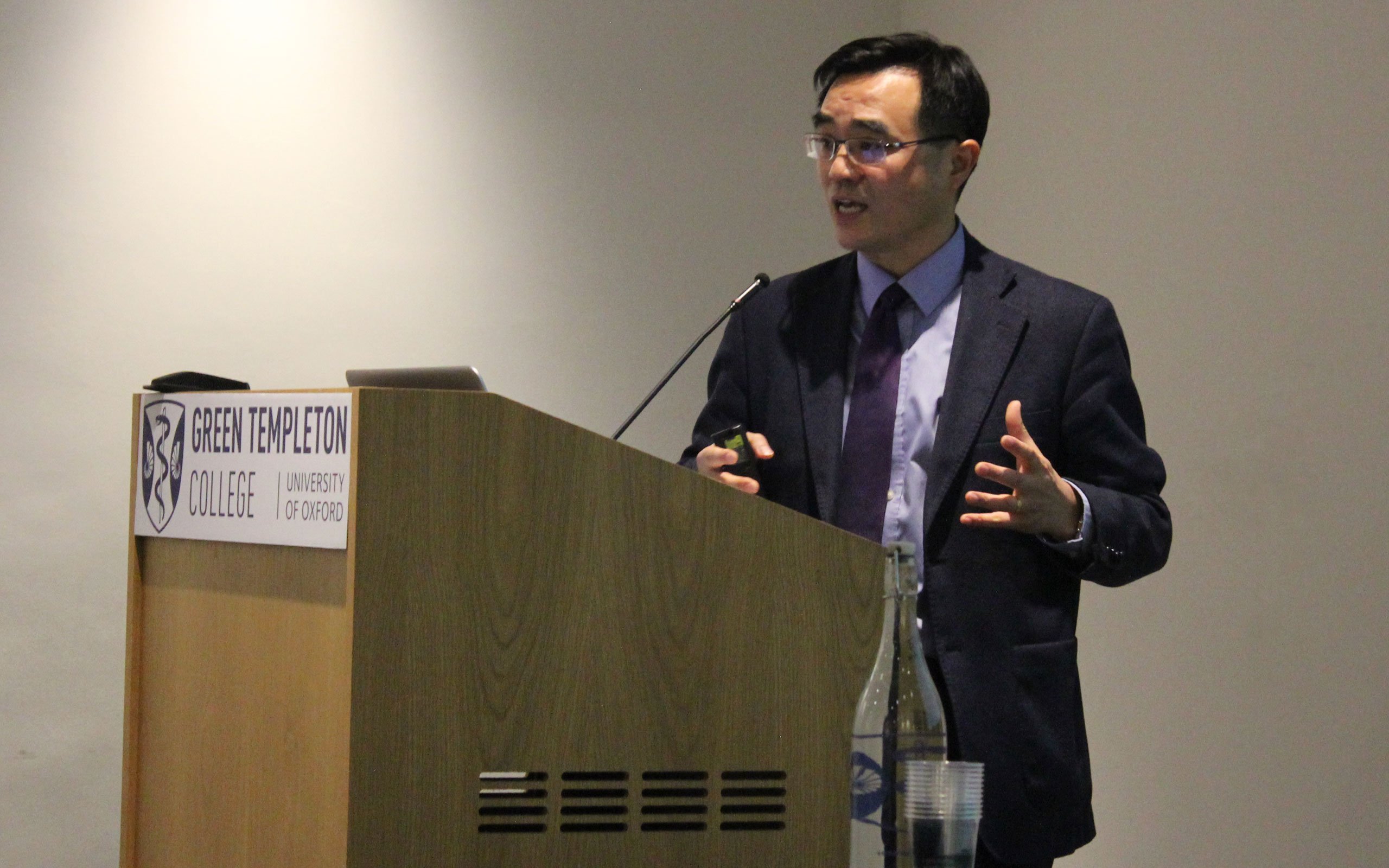Zhengming Chen delivers the 2019 Archie Cochrane Lecture on the work of big biobanks

Professor Zhengming Chen delivered the 2019 Archie Cochrane Lecture at Green Templeton College on Thursday 14 March.
The Professor of Epidemiology at Nuffield Department of Population Health, University of Oxford, said he was “delighted and honoured” to be giving this year’s lecture, called Big biobanks in the East and West.
His lecture primarily focused on the major findings emerging through the China Kadoorie Biobank. Since 2003 he has been the lead principal investigator in the UK for the CKB’s study of 500,000 adults.
“As epidemiologists you should think big, think internationally and study the obvious,” he said. “I hope to share with you and describe to you some of the really exciting developments in epidemiology over the last ten years, and much of it has taken place in Oxford.”
Professor Chen took the audience on a journey through the formation of the CKB and the work involved in setting up such a large study, to the sort of data that is now being processed and how the findings will greatly improve our understanding about the aetiology of many diseases.
The CKB recruited half a million healthy adults across ten diverse areas in China, recording lifestyle and physiology factors, and storing blood. The recruits have been followed over the past ten years via electronic linkage to hospital records and death registries. More than one million disease episodes have now been recorded, including more than 50,000 well characterised strokes or heart attacks.
Professor Sir Richard Peto, a Green Templeton College Governing Body Fellow, opened the evening with a tribute to the late Archie Cochrane, describing him as a “lovely man”, and explaining how Cochrane’s passions for epidemiology and trials have led the annual lecture topics to vary between both fields year by year
Professor Chen came to Green Templeton (then-Green College), Oxford, in late 1987, initially for one year, to analyse the Shanghai Factory Workers cohort. Subsequently he managed to pursue DPhil study in Oxford based on the Shanghai cohort data he brought with him.
The study showed that even at cholesterol levels well below those considered “normal” in Western populations, lower cholesterol still meant lower risk of IHD. This informed the design of large randomised trials in the UK (e.g. Heart Protection Study) that went on to show the benefits of lowering LDL cholesterol irrespective of presenting levels.
He previously studied medicine at Shanghai Medical University in China. His main research has focused on the determinants of chronic disease and development of evidence-based medicine.
Since the mid-1990s, he has conducted several large randomised trials of treatment for MI, stroke and cancer in China, totalling more than 100,000 patients. These trials not only generated important findings that have changed the clinical practice worldwide (e.g. early aspirin in acute stroke, combined antiplatelet therapy in heart attack), but also helped establish the tradition of large randomised trials in China.
Building on the large collaborative epidemiological studies that the department established in China during 1980-90s, Professor Chen initiated and established the CKB of 0.5 million adults, and has been the Lead Principal Investigator, together with Professor Liming Li in China, since its inception in 2003. CKB will continue indefinitely and the wealth of range of exposure and disease outcome data collected or to be generated will lead to many novel findings over the next few decades.

